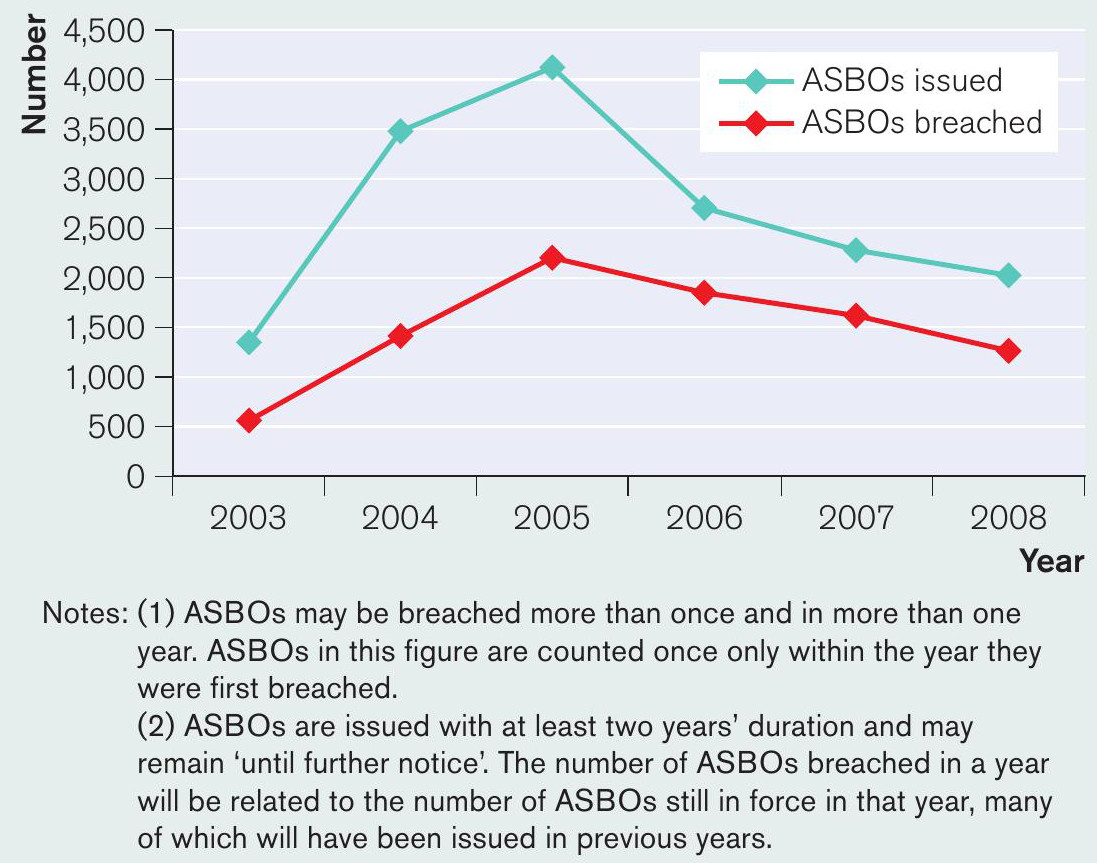
In July 2010 the coalition government’s new home secretary Theresa May made a speech that seemed to signal the end of one of the last Labour government’s key planks for fighting crime and public anxiety about social disorder. May announced that the days of the ASBO were numbered.
These antisocial behaviour orders have been widely criticised as a discriminatory approach to managing public spaces that simply marks out behaviour, often among young people, that others find objectionable or unpleasant. The supporters of ASBOs, on the other hand, say that they can be used successfully to protect vulnerable people whose lives are being made a misery by noisy, disruptive and disorderly neighbours and their children. One in four people in the most disadvantaged neighbourhoods in the UK perceive a high level of antisocial behaviour. But more than half of all ASBOs are breached by offenders at least once (see Figure 1).
Your organisation does not have access to this article.
Sign up today to give your students the edge they need to achieve their best grades with subject expertise
Subscribe




